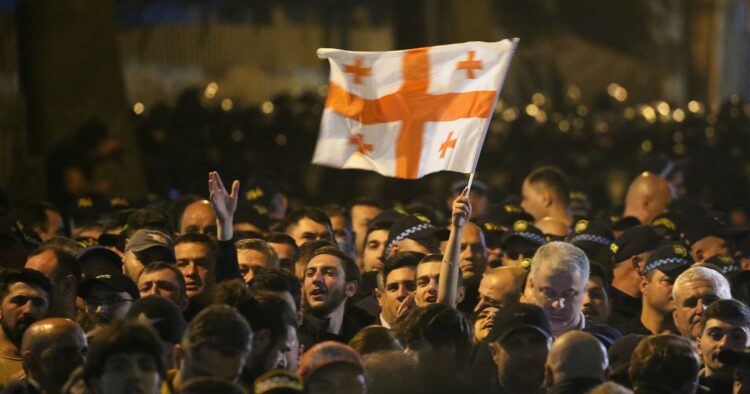Georgia’s parliament made a significant move on Wednesday by giving initial approval to a bill concerning “foreign agents,”. Despite facing strong opposition and protests from critics who see it as an authoritarian measure with Russian influence, Georgia’s parliament made this move.
According to reports from Georgian media, 83 out of 150 deputies voted in favor of the bill during its first reading, while opposition members chose to boycott the vote. The bill will need to undergo two more readings before it can become law.
The proposed legislation stipulates that organizations receiving over 20% of their funding from abroad must register as agents of foreign influence. Critics have drawn parallels between this bill and similar laws in Russia, often utilized to suppress dissent.
The result of this bill is viewed as a pivotal moment for Georgia, determining whether it will continue its path towards integration with the West or lean towards closer ties with Russia, 33 years after the Soviet Union’s collapse.
Protests against the bill have erupted, with demonstrators expressing their discontent and labeling it as “the Russian law.”
Tuesday saw clashes between protesters and riot police, resulting in the use of pepper spray to disperse the crowds. Eleven individuals were arrested, and one police officer sustained injuries. Opposition groups have called for further protests on Wednesday night.
International voices, including the United States, Britain, and European countries, have cautioned against passing the bill. The European Union, which granted Georgia candidate status in December, has criticized the draft law as incompatible with its values.
In response to accusations linking the bill to Russian influence, the Kremlin has denied involvement, asserting that the legislation reflects normal practice. Kremlin spokesman Dmitry Peskov suggested that external actors are exploiting the situation to fuel anti-Russian sentiment.
Meanwhile, Georgia’s ruling party, Georgian Dream, argues that the bill is necessary to enhance transparency and counter what they perceive as “pseudo-liberal values” imposed by foreigners.
The bill, first introduced in March 2023 but shelved due to violent protests, has exacerbated divisions in Georgia, a nation already deeply polarized. Opposition groups, civil society organizations, celebrities, and even the country’s president have united against the ruling party to oppose the legislation.

















Comments